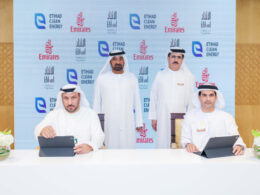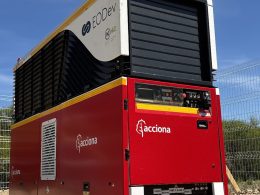Ingka Investments, the investment arm of Ingka Group—the largest IKEA retailer—has announced its first renewable energy project in India, with the launch of a 210 MWp solar installation in Bikaner, Rajasthan. The project forms part of the company’s INR 10 billion ($113 million) commitment to renewable energy in the country.
The project, which has achieved ready-to-build status, will begin construction shortly and is scheduled to become operational by December 2026. Once completed, it is expected to generate 380 GWh of renewable electricity annually, equivalent to powering IKEA’s retail, shopping centre, and distribution operations across India.
“This is a milestone acquisition for us,” said Frederik de Jong, Head of Renewable Energy at Ingka Investments. “It marks our first renewable energy investment in India—a country of strategic importance for both IKEA retail and supply chain operations. The project will make our business in India more sustainable, efficient, and future-ready.”
The investment is part of Ingka Group’s broader EUR 7.5 billion commitment to achieve 100% renewable energy across its global value chain by 2030. To date, Ingka Investments has committed EUR 4.2 billion to wind and solar energy projects worldwide.
In India, the company is partnering with ib vogt, a Germany-based large-scale solar PV developer, which will lead construction and manage the project for its first three years of operation. The development is expected to create around 450 jobs during construction and 10–15 permanent roles once operational.
Patrik Antoni, CEO of IKEA India, said sustainability remains central to IKEA’s operations: “We’ve designed our stores with energy efficiency at their core—two of our large-format stores in Bangalore and Navi Mumbai are LEED Gold certified, and we’re working towards Platinum certification in Gurugram and Noida. As a founding member of RE100, we’re on track to power all our operations with 100% renewable energy by 2025.”
Globally, Ingka Group operates in 31 countries and is aligned with the Paris Agreement and the Science Based Targets initiative (SBTi). In 2024, the company’s updated climate targets were approved by SBTi, including a commitment to cut absolute greenhouse gas emissions across its value chain by at least 50% by 2030 (compared to FY2016 levels) and achieve net-zero emissions by 2050—without reliance on carbon offsets.


















